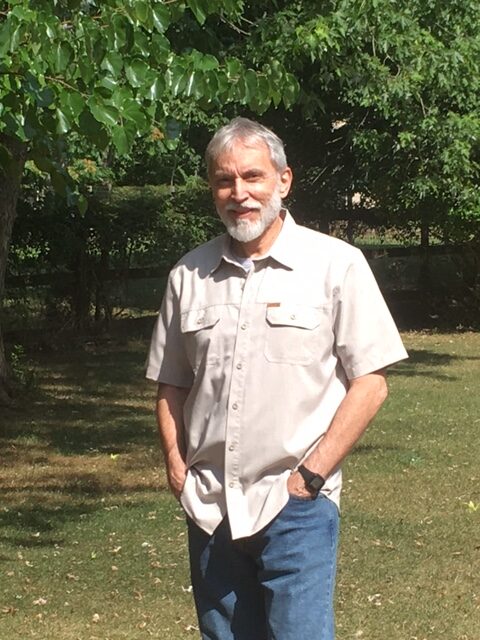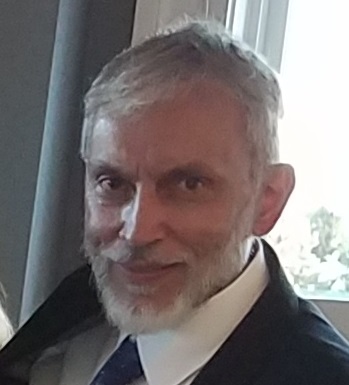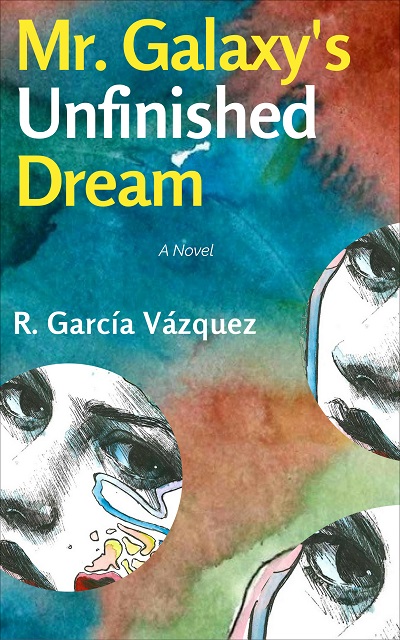A big thank you to Joan Dempsey and her assistant, Aja Rutledge, for featuring me in the Gutsy Great Novelist Writer Studio, “a private online space where serious creative writers gather to finish their novels.” Membership is nearly 1,800 writers as of August 2022, and growing. The following exchange with Aja first appeared on the GGNWS website and is presented here with the permission of the GGNWS hosts.

Gutsy Great Profile / Member – R. Garcia Vazquez
Let’s begin with your origin story. When did you first realize you wanted to write a novel? Was there a particular person or experience that inspired you?
In the late sixties, there was a spy-thriller TV series called The Man from U.N.C.L.E. Dennis and I were 12 years old and huge fans. I became Napoleon Solo, the American counterintelligence spy, and Dennis, my freckle-faced, red-haired pal, became Solo’s brilliant Russian partner, Illya Kuryakin. Dennis and I always discussed the latest episode and proposed alternate outcomes. One day I wrote my own episode and showed it to Dennis. He said, “Whoa! You should write a book!” (Or maybe he just said, “Whoa!”) Anyway, I got enough of a reaction from Dennis to get me thinking I shouldn’t leave planet Earth without writing at least one novel.
When do you make time to write?
Before retiring, I would write in spurts, during lunch breaks or slow periods at work, in between household tasks and family obligations. I did manage to cobble together a bad “novel.” I never let anyone, including Ana (my wife), read it. After I retired, I was able to use some of the ideas from that old experiment to write and complete my first real novel, Mr. Galaxy’s Unfinished Dream. In this new life, I begin writing after breakfast and go as long as circumstances permit, though usually by 3:00 PM my brain starts begging me to stop.
Where do you do your best writing?
In my basement workshop. No one likes going down there. Not the most pleasant environment, but the perfect place for me to enter novelist/monk mode. That’s where I figure out all the hard stuff, the who’s and why’s and how’s, character motivation, page-turning transitions, the ruthless pruning of stale or unproductive passages or scenes, the incorporation of new scenes, fresh twists, and so on.
Do you write from an outline or do you write to discover (by the seat-of-your-pants, or a “pantser” as they call it)? Why?
I’ve tried both ways and have settled on a hybrid approach. With my first novel, I had a good idea where I wanted to go and how to get there. The outline of the story was written in my head. My recent Sci-Fi novel was a different experience, one that took me out of my comfort zone, given the technical research and world-building that was involved, and the challenge of weaving a compelling human story into that unfamiliar material.
Just before I started writing it, I read Stephen King’s, On Writing. At one point, King talks about developing a story without knowing exactly where you’re heading, in order to discover buried treasures. I didn’t know how my story was going to end, so I tried the “pantser” approach. A year later I had a first draft that took me on numerous detours and further away from a potential ending. I love SK, and I take full responsibility for what, at the time, seemed a wasted year.
I took a deep breath and started a new first draft, this time constructing a loose outline with a potential, if not definitive, ending. Having a beginning and an ending gave my writing direction, and still allowed me to dig up plenty of unexpected surprises along the way. I was able to incorporate about 10% of the original material, so that first year wasn’t a total waste. It took me longer than I wanted, but I finished Beneath An Alien Sun this past May, three and a half years after I wrote that first sentence.
What self-doubts, if any, have you experienced during the writing process and how did you overcome those doubts?
To quote Hemingway, “The first draft of anything is shit.” Once I understood that, it was just a matter of asking myself, am I committed to seeing this project through? There are always a few decisions I make while writing a story that give me pause. Those doubts are a natural part of the process. If I’m honest with myself, the reservations I have will lead me to productive revisions. My Dad used to say, Sin sacrificio, no se consigue nada. “Without sacrifice, you won’t accomplish anything.” Writing a novel is no walk in the park.
When you think about your writing life, what accomplishment—small or large—are you most proud of, and why?
A few days ago, my son texted me. He had just finished reading Beneath An Alien Sun. He told me he loved it and went on to say all these wonderful things about how one day his children and grandchildren would read it, and how Ana and I would form part of the family lore, and so on. That brought me to tears. I quickly composed myself and showed Ana the text, and it brought her to tears. (What a pair!) My novel moved my son in a way I could never have imagined. That is, without a doubt, my biggest accomplishment as a writer, and what I’m most proud of.
Have you published a novel yet? If so, talk about your experience of getting your novel(s) published and into the hands of readers.
I reached out to a few agents before self-publishing Beneath An Alien Sun. I received follow-up interest from a couple of them, but nothing further came of it. That was the first time I’d even considered approaching an agent. I had previously self-published my first novel and a short story collection. I read that Amazon publishes about 2,700 books a day. It’s getting harder and harder to get one’s books noticed. I just started running some Amazon Ad campaigns. These can be tricky. I strongly recommend proceeding with caution, if you go that route.

Who provides you with feedback on your work-in-progress? How did you choose that person (or those people) and what do you gain from connecting with them?
My wife was a drama major in college and has a good eye for what works and what doesn’t in a piece of writing. I trust her judgment. When I showed her the newly improved second “first” draft of my Sci-Fi novel, she was disappointed with, and somewhat bewildered by, the opening pages. I have to admit, I got a little annoyed, but the sting quickly faded, and I realized she was right. The tone I was setting for the story was all wrong. Ana knew it before I did.
How have you gone about learning the craft of writing a novel? What have you done to learn what you needed to learn in order to get your novel done?
Reading great fiction is essential. Having had the opportunity as a grad student to experience the beauty and depth of superb literature from my wonderful professors at Rutgers. Hearing or reading what great writers of any era have had to say about the craft of writing fiction. Learning from gifted teachers of writing like the late John Gardner, whose On Becoming A Novelist is a treasure for new and experienced novelists alike. And, of course, resources like Joan Dempsey’s Gutsy Great Novelist community, which keep the novel-writing conversation going and provide the kind of support and wisdom that benefits us all.
What do you love to read? Name a few novels you’ve read that are your all-time favorites.
Literary fiction, Sci-Fi, magical realism, historical fiction, stories by Flannery O’Connor, Alice Munro, Philip K. Dick, and George Saunders. Off the top of my head, a few of my favorite novels: Crime and Punishment, One Hundred Years of Solitude, The God of Small Things, A Farewell to Arms, The Bluest Eye, The Forever War, Atonement, The Lord of the Rings…
Tell us one non-writing-related thing about yourself that not too many people know about you.
I was conceived in the northwest of Spain, which is the gorgeous, bagpipe-loving, Celtic region known as Galicia. My mother was seven months pregnant when she emigrated to Newark, NJ-USA, where I was born and raised. I’m fluent in Castilian (i.e., Spanish) and Galician, which is one of the four official languages spoken in Spain.
What advice or words of wisdom would you give to a writer who hasn’t yet finished a novel?
Patience. Endurance. Perseverance. Patience, because it’s a marathon, not a sprint. Remember what Hemingway said about first drafts. Endurance, because you’ll have to develop a certain toughness that will get you through those moments of self-doubt, lack of direction, and utter confusion. Perseverance, because you will have to will yourself to keep going for months or years of interruptions, lack of energy or inspiration, loneliness, countless drafts and revisions, and whatever else life throws at you.
What else would you like to share about your life as a writer?
Writing fiction has helped me become a better person. It’s helped me to understand myself and others better. It’s made me more compassionate. Maybe that’s what matters most, whether you write novels or short stories or journal entries or letters. Writing, for me, is not only a means of self-fulfillment, but a way to connect with others on a basic human level. That another person might be entertained, or moved, or inspired by something I wrote… To me, that’s priceless.

